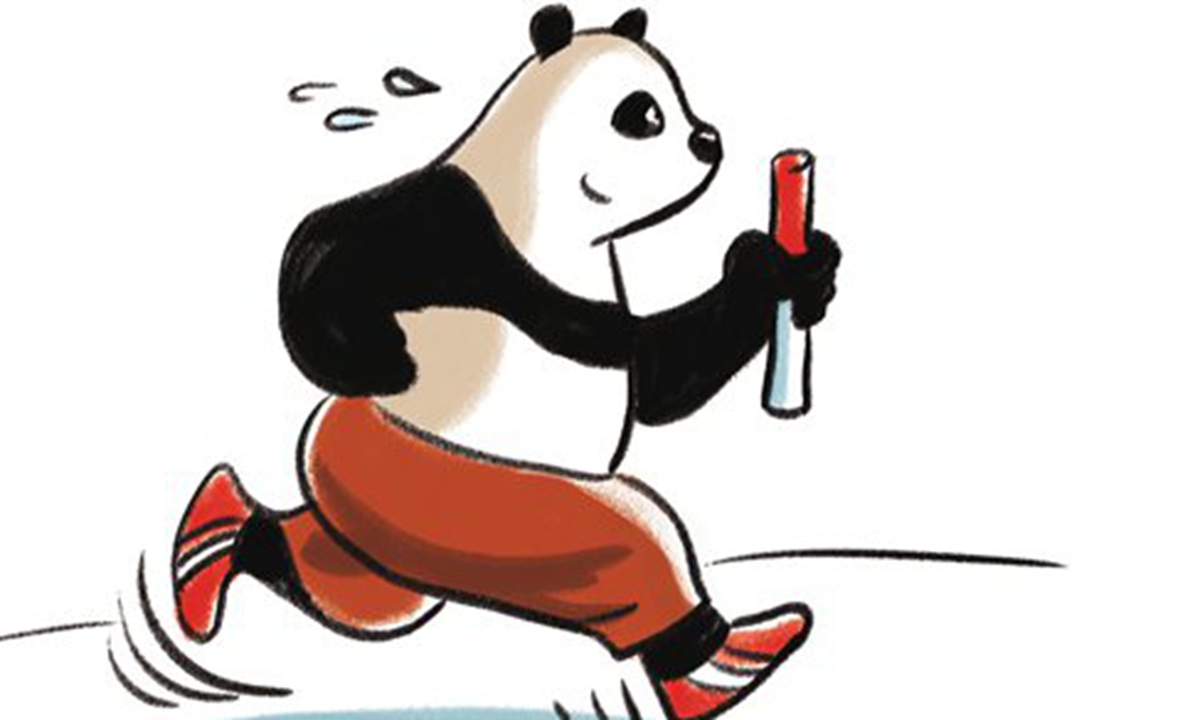China is balancing setbacks yet standing straight up
By Hu Xijin Source: Global Times Published: 2020/11/19 19:54:02

Illustration: Liu Rui/GT
Some netizens often complain online, saying Chinese people feel depressed because China has to endure US suppression, refrain from taking countermeasures against India's border provocations. Even some small countries dare to bully China. Also with the Taiwan question, we have been all talk and taken no real actions. All that makes people feel uncomfortable.I have to say this, at least to some extent, this is a misconception. There is no country in the world that feels absolutely comfortable. In terms of ruling groups, the Trump administration must be the "most comfortable" one, but it is foolhardy in the eyes of the world's elites. If we take a look at China from perspectives made outside of the country, few people regard China as a "punching bag." Generally speaking, the world is half-civilized, and the other half goes by the law of the jungle. Yet all countries need to be able to take temporary setbacks. In my view, China, as the world's No.2 economy, is doing quite well balancing its "setbacks" and managing to "stand tall."
The proof of this assertion is: by strategically forging ahead, China has managed to keep growing stronger. What has been the core interest of China in the past decades? Development. And what do many US elites hate the most? What is it about the world order that they don't accept the most? The answers are the same. China's rise. Our grand goal is constantly being achieved. This make them swear and feel down.
In the past, it was elite and upper-middle class Westerns who lived the high life with posh suites, cars, and traveled around the world. We Chinese at present are also living this way. What earth-shaking changes! No country has succeeded in standing in the way of the Chinese to live improved lives. As individuals, there are some ups and downs in our daily lives. But as collective Chinese, our lives for decades have not been miserable at all.
In terms of territory in the past few decades, not an inch of land has been lost. The Chinese army has not taken a step back on the China-India border, the Diaoyu Islands in the East China Sea, and the Nansha Islands in the South China Sea. Western public opinion has influenced some other countries to collude with the likes of Washington in particular to demonstrate against China. But these are only shrill narratives, designed only for show. To be sure, China has not suffered any issues of territorial loss for decades.
Sure, the Trump administration has been cracking down on China, and this has created many troubles. But what has it actually achieved? The US' trade deficit with China has risen, instead of fallen. While China quickly recovered from the outbreak, the US became the most affected country in the world. Chaos did not happen in China, but the "Black lives Matter" campaign is unfolding like a revolution in the US. The power gap between China and the US has clearly narrowed, not widened, over the past few years.
As for Taiwan, there are two points I want to say. First, the Taiwan question has already been relatively "shrunken" due to the expanding pattern of China's strategic interests. Second, despite all the fuss that Taiwan regional leader Tsai Ing-wen's authorities have made, the Chinese mainland's actual control capacity in the Taiwan Straits has unprecedentedly increased. China has historically taken the Taiwan question into its own hands, much as it did when Beijing was encircled in 1949.
But of course, China can't just get what it wants, nor can China teach one a lesson whenever it wants. In that case, isn't China becoming the world's "public enemy"? China's development has been achieved through numerous win-win and all-win strategies. This is a way that avoids and resolves disputes and conflicts, one step at a time. The process of doing big things is always difficult. You have to be tough when you need to be tough. But you also need to have a soft side. Difficulties in doing so are not about being oppressed. Quite the contrary, they represent a strong ability and wisdom.
The author is editor-in-chief of the Global Times. opinion@globaltimes.com.cn
Posted in: OBSERVER